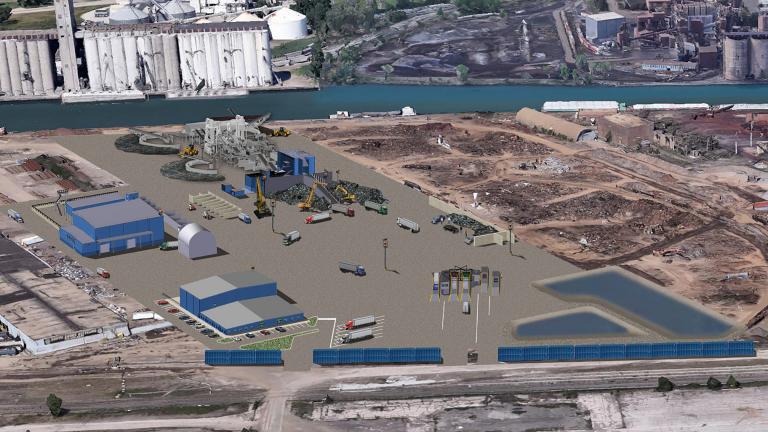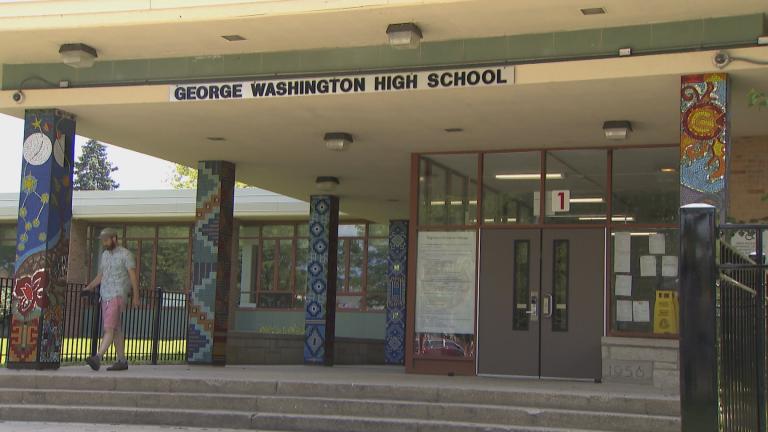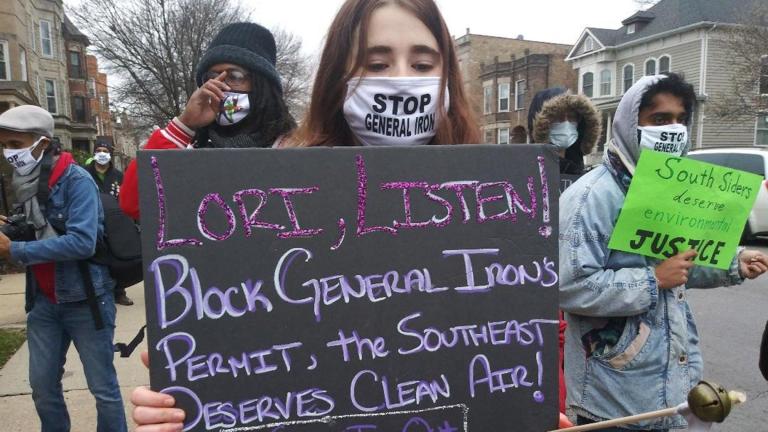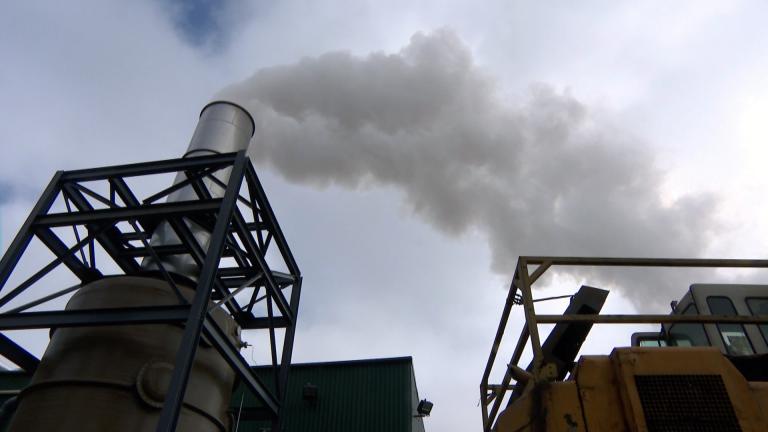Protesters opposed to the opening of a metal-scrapping plant on the Southeast Side are using a hunger strike to draw attention to the plans.
They’re calling on the city to deny a bid from Reserve Management Group to shut down General Iron in Lincoln Park and open Southside Recycling in South Deering.
Maritza Darling-Ramos, who grew up on the Southeast Side, joined the strike on Monday.
“We have spoken to some of our state senators, we have tried our best to have a meeting with the mayor,” Darling-Ramos said. “We did everything that we could up until this point to let them know that we don’t want them here. We had to get to the point where we were starving ourselves to hopefully have them listen.”
Chuck Stark joined the strike over two weeks ago. He’s a biology teacher at George Washington High School, located across the street from the proposed recycling facility.
“When you look across the street from the school right now, it’s all industrial development and that’s not the kind of development that you would want to see in a neighborhood,” Stark said.
Stark said he hears too many stories of asthma from his students.
South Deering and surrounding communities have long been heavy with industry. Years ago, it was a hub for the steelmaking industry. Today, residential communities sit between industrial plants on the Southeast Side.
Peggy Salazar of the Southeast Environmental Task Force says it’s important to look at the cumulative impact of industrial plants on the community.
“We keep saying that the industry that’s here is polluting industry,” Salazar said. “We are zoned for dirty industry. Dirty industry equates to polluting industry. Every time they add something to what’s already here, it just intensifies those effects. That’s why we’ve been saying we don’t need anymore.”
She said that while recycling is important, metal-scrapping plants don’t belong near residential communities.
“We’ve been saying this for a long time: certain businesses should not be operating in the backyards of communities,” Salazar said.
Ald. Susan Sadlowski Garza, whose 10th Ward includes South Deering, said she is humbled by the hunger strike.
“People have to understand that this action was generated because people felt like they were not being heard,” Sadlowski Garza said. “No one should have to starve to be heard.”
Sadlowski Garza said Reserve Management Group has been in her ward for 29 years.
“It’s not moving from anywhere, it’s been here,” she said.
The parent company for the new Southside Recycling facility declined an invitation for an interview, but an RMG spokesman appeared on “Chicago Tonight” last week.
Randall Samborn said extra steps have been taken to control pollution at the new facility, including a “capture and control system, a filter, a thermal oxidizer that burns off volatile organic compounds, explosive prevention devices and a wet scrubber that removes harmful particulate matter and volatile organic compounds from its emissions stream.”
He said the company has been unrightfully demonized.
“It’s become a symbol of an environmental justice issue that is very real and should be receiving attention and taken seriously,” Samborn said. “But the new Southside Recycling facility is not the problem. It is not the toxic polluter that has been portrayed, and unfortunately, the opposition has been built around some myths and misinformation.”
A federal complaint filed over the plans last year argues that residents’ civil rights were violated when the city decided to allow RMG to operate the facility on the Southeast Side.
The Chicago Department of Public Health says any proposed facilities will need to meet city standards in order to operate.
“The CDPH created new and more stringent recycling rules to incorporate several significant requirements, including air and noise assessment and monitoring, as well as other requirements to minimize dust and pollution,” a spokesperson for the Chicago Department of Public Health said in a statement. “Any proposed facilities — including RMG/Southside Recycling — that wish to operate in the City of Chicago will be required to meet these high standards. Otherwise they will not be allowed to obtain their required permitting.”
The Lightfoot administration has asked the Environmental Protection Agency for guidance on the permit.






